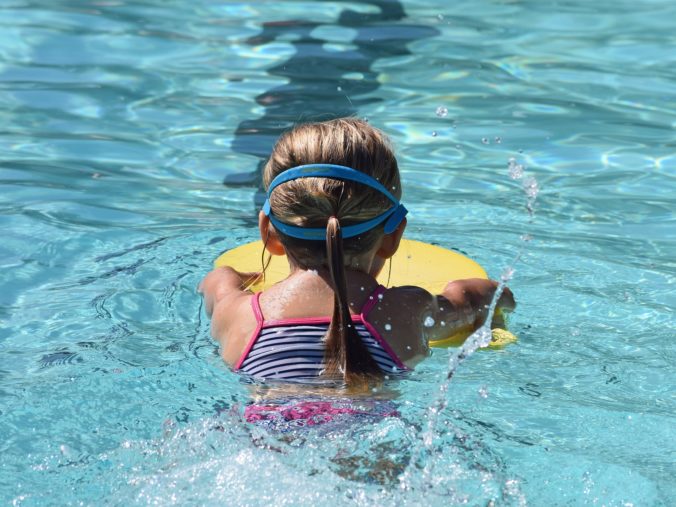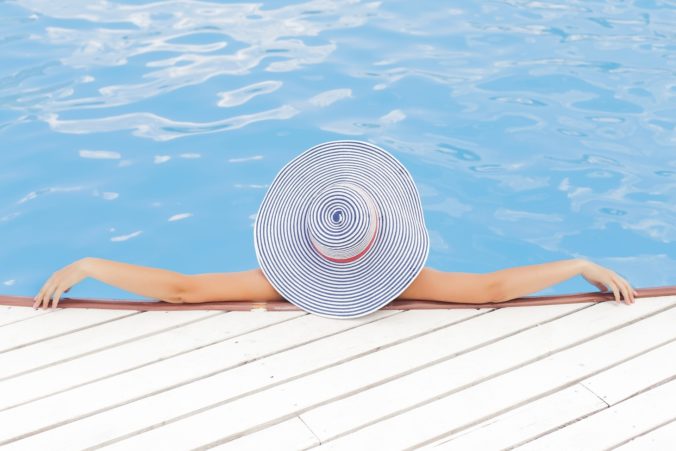Our ears need special care and attention during the summer to protect them from the risk factors encountered at this time of year. During the vacation period, we may take part in water sports, travel on airplanes, go to music festivals or enjoy other activities that may cause hearing impairment.
We should all be aware of the importance of taking care of our hearing health during the summer in the same way that we care for our skin by protecting it from the sun.

Risk factors during the summer
- Sudden changes in pressure: taking part in sports such as scuba diving or travelling on an airplane may cause ear discomfort as the ear cavity spontaneously adjusts to changes in pressure. If these changes in pressure are very sudden, they may cause ear damage. To avoid them, we recommend taking sweets or chewing gum on the plane with you, or even using pressure-regulating earplugs to prevent tinnitus. If you have a cold, we advise taking a decongestant before boarding the airplane.
- Continuous exposure to loud noise: it is widely known that loud noise is harmful to our ears and causes hearing loss. It is important to reduce our exposure to the very loud music and noise typical of nightclubs and concerts, and try not to stand near to loudspeakers or at the front at concerts.
- Abuse of alcohol or tobacco: the consumption of toxic substances such as alcohol or tobacco can have a negative impact on hearing ability. Reducing our consumption of both is key to minimizing the consequences.
- Prolonged use of air conditioning: sudden changes in temperature caused by the contrast between the cold air indoors and high temperatures outdoors contribute to sore throats and pharyngitis, voice problems and ear infections (otitis). ENT specialists recommend avoiding the prolonged use of air conditioning and sudden changes in temperature.
- Immersion in water: this is the main cause of ear problems during the summer. Moisture in the ear canal encourages bacterial growth, causing otitis externa infections, also known as swimmer’s ear. Wax deposits commonly found in the ear swell with this moisture, causing not only discomfort but also mild hearing loss. Using earplugs or a swimming cap is advisable to prevent water entering the ear canal, and the ears must be dried thoroughly when we leave the water.
The Spanish Society of Otorhinolaryngology and Head and Neck Surgery (SEORL CCC) also warns that people who suffer from excessive sweating and spend the most time in the water – such as young children – are more vulnerable to this type of infection. Doctor Manuel Manrique, President of the Otology Commission at the SEORL points out that, “Additionally, children have smaller ear canals, which can make it easier for water to become trapped.”

5 tips for caring for your hearing health
- See an ENT specialist before the summer season of swimming, festivals and travel begins. Kiversal recommends scheduling an appointment with a specialist to undergo an audiometric hearing test to check the state of your ears and hearing ability.
- Take an antihistamine or decongestant before boarding an airplane.
- Use earplugs on flights, when exposed to loud noise or when you go swimming.
- Keep prolonged exposure to loud noises to a minimum.
- Dry your ears thoroughly when you leave the water and reduce the amount of time they are immersed.
Follow these tips for caring for your hearing health and enjoy the summer with all your senses! 😉

0 Comments
1 Pingback